Guest Author – Grace R. Duncan
Grace R. Duncan
Today I’m pleased to welcome Grace back to my blog. She’s going to talk about her latest release Deception and the role of research in writing her books.
It never ceases to amaze me, the amount of research that goes into a story. I sat down and went through my catalog of both fanfiction and original pieces and there wasn’t a single story that I saw that I didn’t research at least something for. A quick glance at my adultfanfiction.net profile (the most complete collection of stories, though it still doesn’t have everything) shows that I’ve put some forty-one separate stories up there and as I scanned through the list, I can remember something I’ve researched for each one. Mind you for some – like my Golden Collar series- I have researched quite a bit more than one thing for it.
For Golden Collar, in fact, the list of things I’ve researched seems endless. I remember looking into everything from food to clothing to transportation (horses, royal conveyances, and travel time). I spent more time than was likely necessary researching deserts, desert peoples and the climate of those parts of the world. I have a folder on my computer with countless pictures of palaces, horses, food, you name it.Some stories require more research than others, obviously. For instance, Science Fiction— a genre I hope to write in someday —would, in my estimation, require a lot if the science were to be believable. Historical fiction is also like that, if the writer wants to make sure that the world is at least reasonably historically accurate. We all will still take some (even small) liberties with the worlds we write because some things just aren’t feasible within our stories. However, the research is still a must, no matter what liberties we take and the list of different items to look into can be quite long.
I also researched technology. In fact, at one point, I was about to write something on the passage of time and it occurred to me that during the time period in question, my characters might not actually know what a “few minutes” felt like… since “minutes” might not have even been a concept to them.
The Golden Collar series takes place in the fictitious country of Neyem in the late 11th century. Even though the country is made up by me (and, in fact, the entire map is), I still wanted most things to be as accurate as I could make them for a late 11th century Middle Eastern-type of nation. So, to the Internet!
What was the Middle East like in 1095 AD? What technologies – specifically time-keeping devices – would have been around? Well, fewer – and yet more – than one might think.
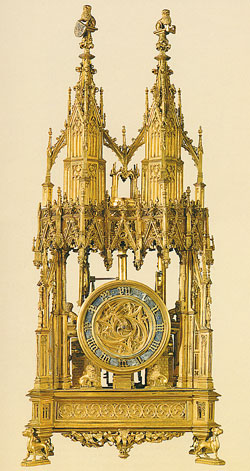
Cathedral clock created for Philip the Good, Duke of Burgundy, around 1450.
When we think of clocks in this day, we often think of our small watches, probably our cell phones or some other digital device. Those of us who remember big hair in high school will undoubtedly first think of classic clock faces and their internal gear workings. But the earliest spring- and gear-driven clocks were actually only referenced in the 15th Century. One such instance is the chamber clock that the Duke of Burgundy was gifted with in the early 1400′s.
Okay, well then, those were out, right? If we’re in 1095, obviously we can’t use spring-gear-driven clocks. So what did they use? Surely they kept time, right?
Most definitely. There were clocks (actually known as horologia – a Greek word meaning ‘hour’ and ‘to tell’) possibly as old as the 2nd century BC (though its exact date of construction seems to be contested). Called the Tower of the Winds, it was built on the agora in Athens and has quite a long history of changing hands and being buried and later dug up.
 But as famous as the Tower of the Winds was, it was quite unusual, which is undoubtedly what lent to its fame. So it was also quite rare. Not something a small-ish Middle Eastern country was likely to build. So, then, what did the more common royals use?
But as famous as the Tower of the Winds was, it was quite unusual, which is undoubtedly what lent to its fame. So it was also quite rare. Not something a small-ish Middle Eastern country was likely to build. So, then, what did the more common royals use?
Believe it or not, something that is occasionally still in use today and yet dates back as far as the 16th century BC (and possibly even earlier, though with no written records, we can’t know for sure). Yet again, when they first started to be used is in contention (like most of history, it seems), but they are all sure that the water clocks were first used at least by the 4th century BC in China.
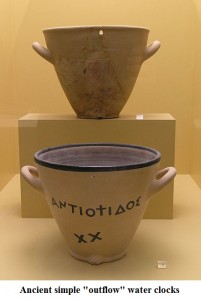
As one of Neyem’s neighbors is based (somewhat not-so-loosely) on China, it would make sense that they would have these and possibly many. But what surprised me quite a bit was to find out that it was actually an Arab inventor & scholar (among other things, basically an earlier, Arabian version of Leonardo daVinci), al-Jaziri, who was instrumental in advancing the water clock. He lived about 40 years after Choices and Deception take place, but remember those liberties that we authors take? Well, I figured it was close enough.
So, what are water clocks? They are, essentially, a measured movement of water from one place to another. As the water moves, the person looking at the clock knows – again approximately – how much time has passed. The simplest water clocks were two pots – one higher than the other. The upper pot had a hole in it and the water flowed out into the lower pot. The level of the water in each of the two pots would indicate the general time.
I didn’t actually use a water clock specifically in either Choices or Deception. Instead, I simply assumed that would be the time-keeping method of preference. Some countries had measured burning incense that I could see the Neyemen people using along with other time keeping devices like measured candles.The design drastically improved as time went on and, in fact, it was al-Jaziri who was very instrumental in their change, becoming much more intricate with large gears, moving parts and more. When I started reading about them, I realized quickly that unless Mukesh or Bathasar paid to commission one or he was gifted with one in an effort to impress him, he wasn’t likely to see one built. (Mind you, Bathasar might just inspire something like that. Mukesh… not so much.) So they would have them, though they would likely be more simplistic.
In the end, I decided it wasn’t worth making a point of. Teman would have known how to tell the time by the sun and used that. Bathasar, as a royal, would likely not have cared what time it was, specifically. And the situation I was concerned with – Teman on the floor waiting for his turn to be presented – would have felt infinitely longer than any actual time passage, anyway.
It’s still interesting to see what all is researched in the name of writing fiction. I know that I often research things that I end up leaving out entirely. And, in fact, I even researched medieval toilet options and decided I didn’t think people wanted to read about it!
Historical fiction, I think, is worse than most other genres because there is a need for accuracy. It’s often under the microscope as many people like to read history and want it to be as close to real as possible. This is, undoubtedly, why so many authors turn to alternate worlds so that they can have some freedom in what they do.
I’m lucky in that I love research. Most often, I get lost in it, clicking from one place to another. It’s something I find myself having to rein in quite a bit or I will never get my book written! I do hope, however, that it lends a fullness and realistic quality to the Golden Collar series.
Please note: Yes, I used Wikipedia in my links above. While I was researching, however, I can assure you I read many, many more pages. I would never actually depend on Wikipedia for all of my research. It’s a good starting point, though and there are many great links if the above really interests you.
* * *
Thank you very much to Andrew for hosting me today!
Free eBook Giveaway:
Answer any of the questions below or just leave a comment to be entered for a chance to win a free ebook copy of either Choices or Deception. One winner will be chosen at random from all the comments received by 8:00 p.m. EST on Friday January 31, 2014.
Questions:
Tell me, what do you look for in world building?
Do you like to see researched details like this?
Or do you feel they take away from the overall story?
Blurb:
Cyrus and Nadir first met as hungry orphans on Behekam’s streets at twelve years old. They became friends, then partners in the thievery that enabled them to survive, and as they passed their days together, they fell in love. When they are both taken as pleasure slaves in the opulent palace of the Malik of Neyem, love becomes more complicated.
Rumors of an attempt on Malik Bathasar’s life put Cyrus and Nadir’s relationship to the test—they must pose convincingly as intimate slaves to the young malik as part of a plan to lure the assassin into the open. Teman—Malik Bathasar’s real personal pleasure slave and true lover—was once trained by Cyrus for the same duties, and the attraction and care Cyrus developed for him then still remains. The Malik of Neyem proves an easy man to love and Nadir’s feelings for him grow while they’re pretending to love each other.
Cyrus and Nadir care deeply for each other but they’ve forgotten the first rule of love: communicate in honesty. Their love remains strong enough to weather the changes—if they have the courage not only to face the coming dangers, but to put aside deception and find their truth.
The Golden Collar series: Choices, Coronatin & Deception


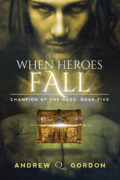
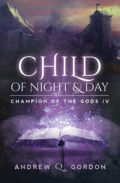
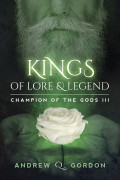
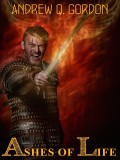
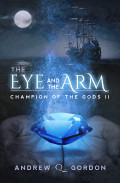
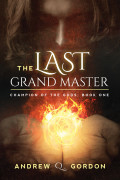
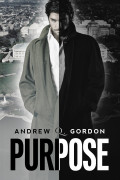




[…] Click me! Go on, you know you want to! […]
Thank you so much for hosting me, Andrew. 🙂 I hope you enjoyed the article, at least, since it doesn’t seem anyone else is reading it. XD
Research – my thoughts. There is a time and place for m/m romance and erotica. And I love to read them. But show me an author who is willing to put the time and effort into researching ancient artifacts and that touches my soul. There has been romantic historical fiction around forever – and it’s refreshing to find someone who wants to write about something other than hetero couples – cause I’m more than willing to read it!
Ack, kicking myself for missing the drawing! I’ve always been a big research buff myself, so I like to see it in a book (as long as it doesn’t overwhelm the story)…